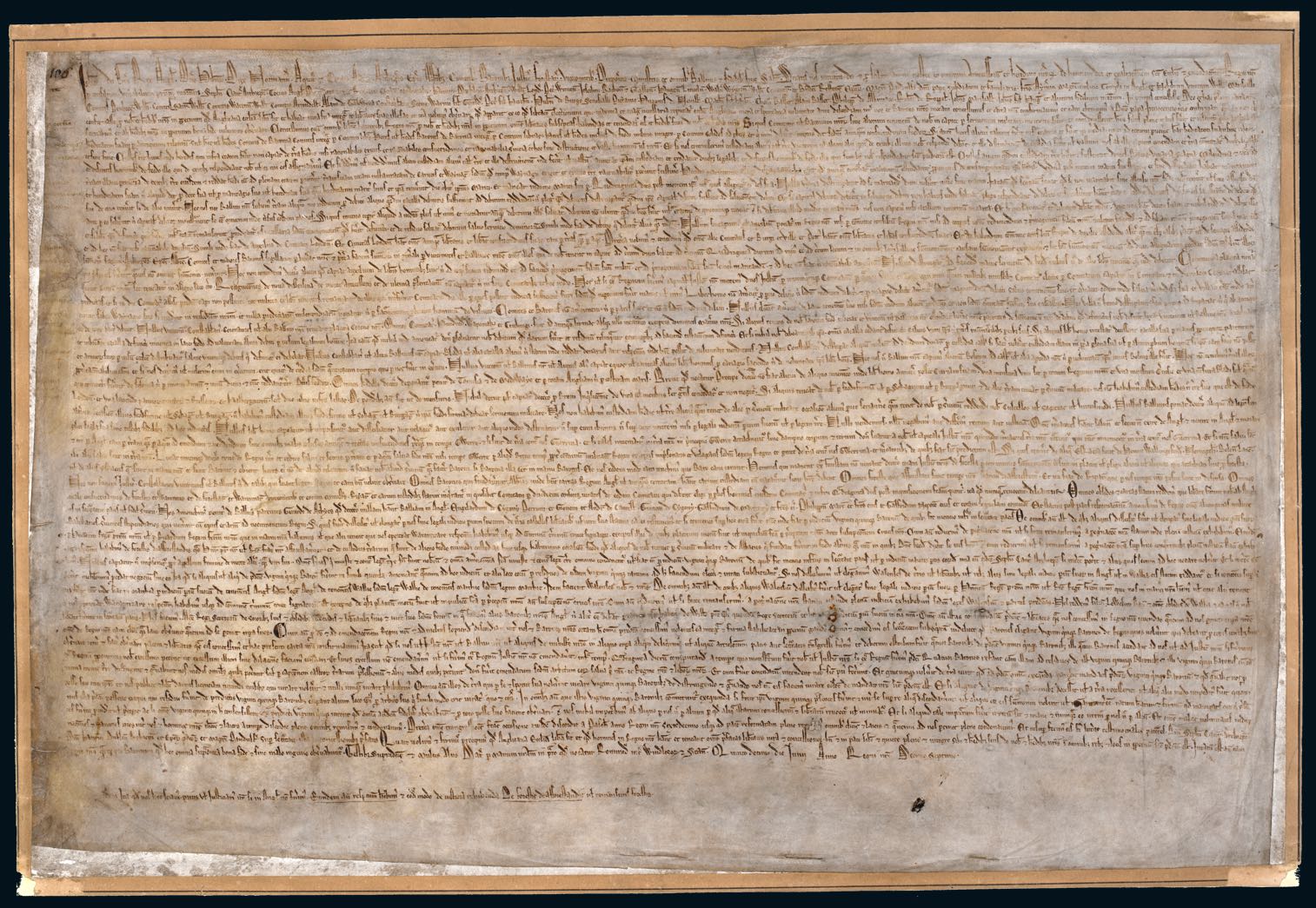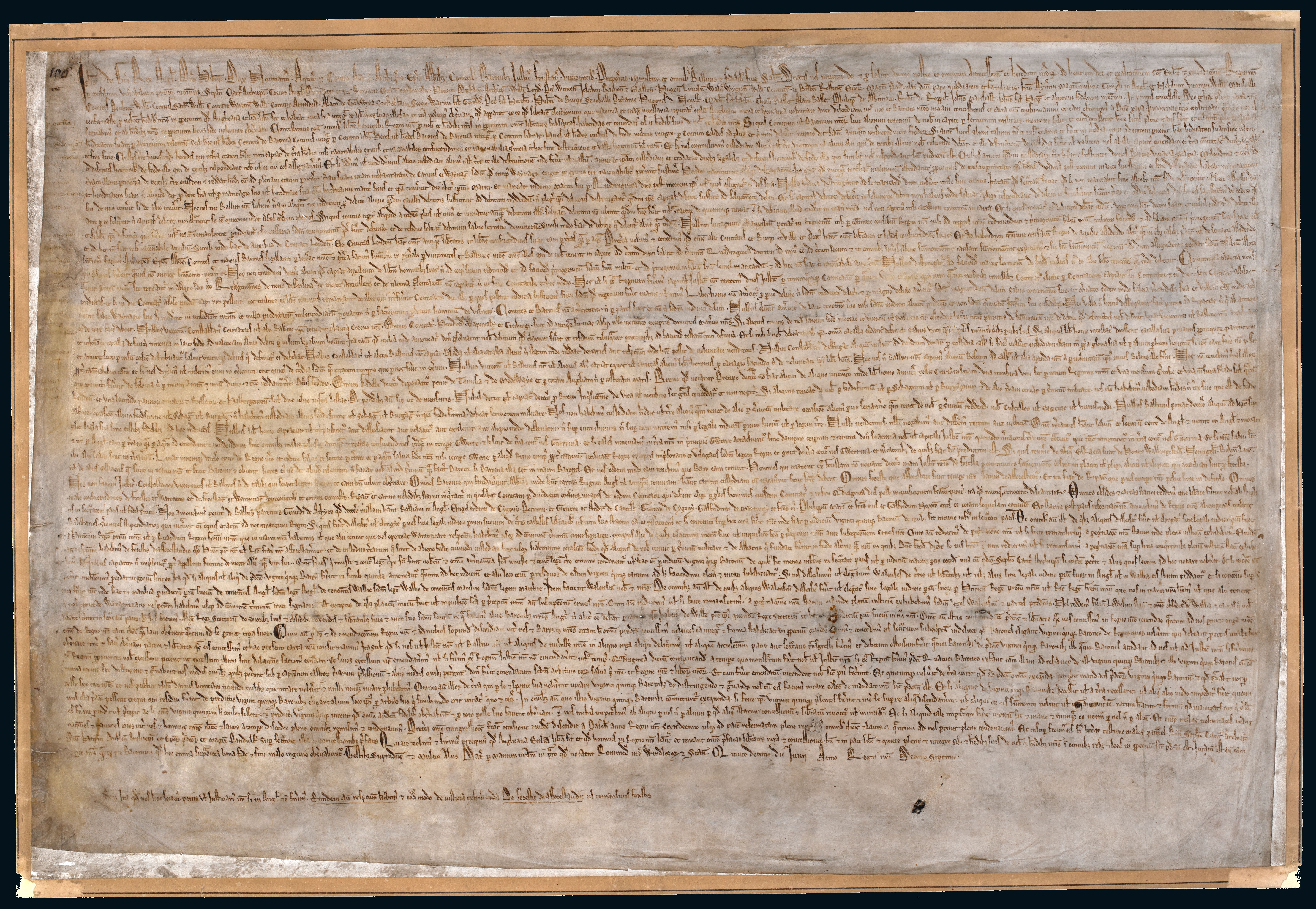
Si aliquis tenens de nobis laicum feodum moriatur et vicecomes vel ballivus noster ostendat litteras nostras patentes de summonicione nostra de debito quod defunctus nobis debuit, liceat vicecomiti vel ballivo nostro attachiare et inbreviare catalla defuncti inventa in laico feodo ad valenciam illius debiti per visum legalium hominum. Ita tamen quod nichil inde amoveatur donec persolvatur nobis debitum quod clarum fuerit et residuum relinquatur executoribus ad faciendum testamentum defuncti. Et si nihil nobis debeatur ab ipso, omnia catalla cedant defuncto salvis uxoris ipsius et pueris racionabilibus parcibus suis.
If at the death of a man who holds a lay 'fee' of the Crown, a sheriff or royal official produces royal letters patent of summons for a debt due to the Crown, it shall be lawful for them to seize and list movable goods found in the lay 'fee' of the dead man to the value of the debt, as assessed by worthy men. Nothing shall be removed until the whole debt is paid, when the residue shall be given over to the executors to carry out the dead man’s will. If no debt is due to the Crown, all the movable goods shall be regarded as the property of the dead man, except the reasonable shares of his wife and children.
